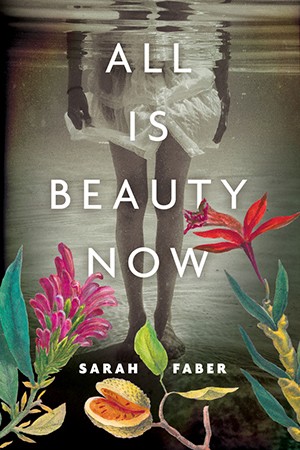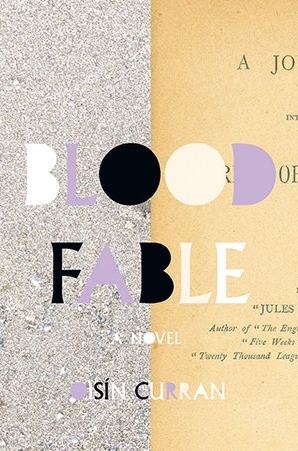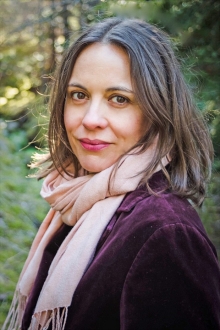While at the university, Curran attended a poetry translation course given by Antonio D’Alfonso, BA 75. Part of the class work involved translating poems by 17 Quebec poets, and D’Alfonso used the assignment to publish an anthology called Found in Translation, where each poem is translated by five different students, including Curran.
“I always wanted to be a writer and at Concordia I gravitated toward literary translation — it’s something I haven’t pursued, but would be happy to revisit,” Curran says. “I started writing when I was in third grade — I just felt I had to.”
Early start
Like her husband, Faber knew from an early age that she wanted to be a writer. “I started writing as kid,” she says.
“I always had a certain voice — a narrator inside my head — words arranging themselves in a particular order. It was either write it down or be driven mad by it.”
Faber credits her time at Concordia with giving her a thicker skin. “Workshops helped me to think more critically about my own writing, and to be less self-indulgent. They also helped make me less sensitive to criticism,” Faber says.
“There are people in workshops who will flat out tell you they hate your writing, and that can actually be a very useful thing,” she adds. “It makes rejection easier to take, and you learn that you don’t really need everyone to like what you do. You just need to be clear in your own mind about your particular aesthetic and preferences and try to execute those as skilfully as possible.”

 Sarah Faber’s All is Beauty Now | Cover design by Kelly Hill
Sarah Faber’s All is Beauty Now | Cover design by Kelly Hill
 Oisín Curran’s Blood Fable | Cover design by Malcolm Sutton
Oisín Curran’s Blood Fable | Cover design by Malcolm Sutton
 Oisín Curran’s Blood Fable won the Thomas Raddall Atlantic Fiction Award from the 2018 Writers’ Federation of Nova Scotia. | Photo: Sarah Faber
Oisín Curran’s Blood Fable won the Thomas Raddall Atlantic Fiction Award from the 2018 Writers’ Federation of Nova Scotia. | Photo: Sarah Faber
 Sarah Faber won the Margaret and John Savage First Book Award from the 2018 Atlantic Book Awards for her novel All is Beauty Now. | Photo: Steve Rankin
Sarah Faber won the Margaret and John Savage First Book Award from the 2018 Atlantic Book Awards for her novel All is Beauty Now. | Photo: Steve Rankin